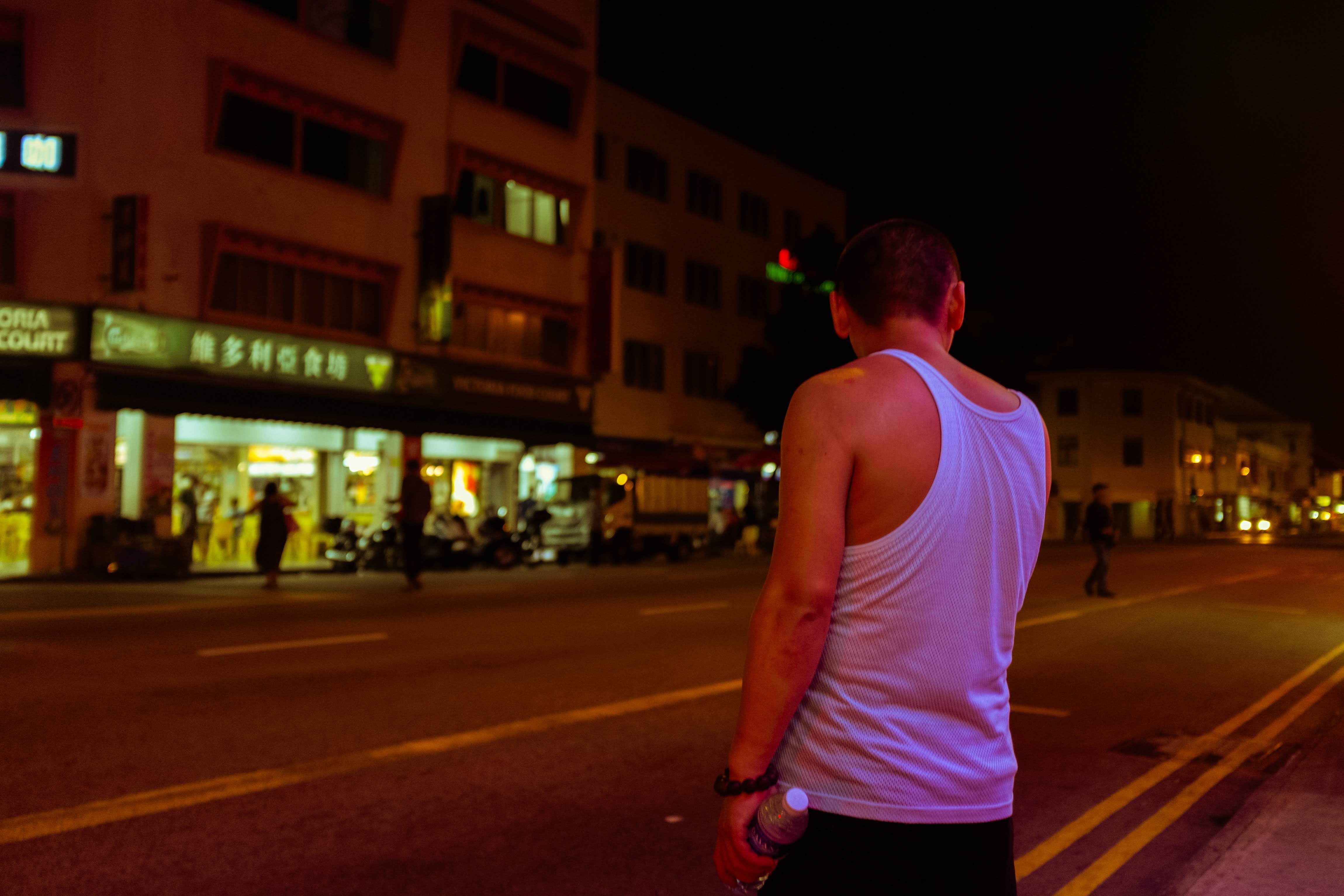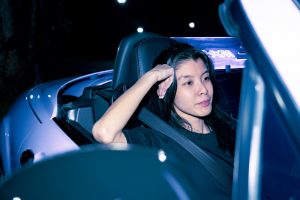“In primary school, I thought drugs were 100% wrong,” says Marina, a 17-year-old student waiting to get into polytechnic.
“I thought people who did them were criminals because we were taught to not touch them. If we did, we were horrible people. We didn’t really know what they do to people, what the dangers are and what we could do to prevent getting harmed if we ever come across drugs.”
Likewise, Sandra, a 23-year-old professional, felt like she was sold a hardline approach to drugs growing up.
“My family is Indian, so they were against drugs and alcohol. I never even thought I would drink. I once broke up with a guy because he used to smoke.”
“Now, I would say marijuana* is not a hard drug, but my parents always put them all together and made comments like ‘oh, your third cousin is wasting his life away smoking.’ That was the way it was put across.”
Growing up, much of my generation was taught by our families, schools, and government to “say ‘no’ to drugs”. We donned green and white ribbon pins and participated in anti-drug campaigns, while police officers came to our schools to warn us against getting caught using or dealing substances.
Still, our generation seems to have a more liberal attitude towards the issue. Maybe we are more likely to know someone who has travelled abroad and taken drugs, or people who’ve tried them here in Singapore. And we might have noticed that they did not succumb to addiction, or end up throwing their lives away. Perhaps it’s also the accessibility of information from YouTube and TV shows; even articles about people going on medical drug retreats.
So what exactly has changed?
*For the sake of this article, marijuana, cannabis, weed, pot and ganja all refer to the same substance.
Pop Culture And Social Media Platforms
The first time kids in Singapore are exposed to drugs (outside of school activities), it usually comes in the form of movies, TV shows, and YouTubers.
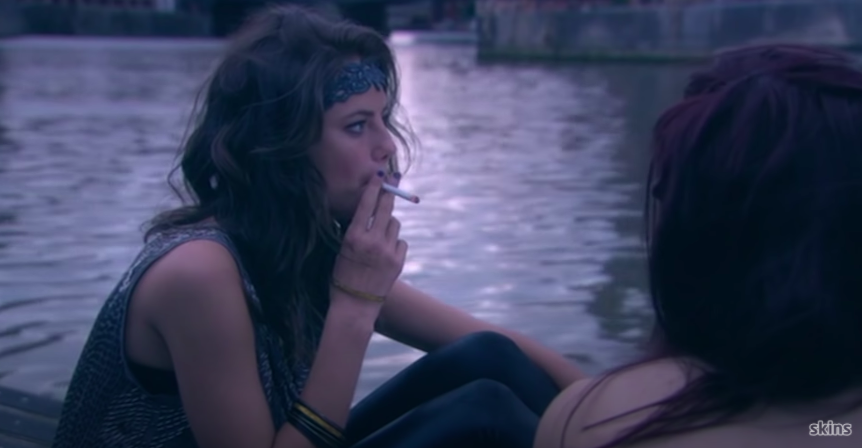
Another movie that recently made waves is Beautiful Boy, where Timothée Chalamet portrays a young boy addicted to meth. It shows how him and his family are affected by his addiction, and why drug abusers need to be supported.
“These movies and series teach me a lot about how addicts are struggling with their mental health. They show us what they are going through, what brought them to making the decisions they made, and that sometimes they just need love and support. They can’t just be locked away forever. Instead, they need to be helped out of their addictions,” Marina said.
In recent years, Singapore has redesigned our drug prevention and rehabilitation efforts to have more gradations and include more targeted approaches to reduce drug abuse and relapse rates. Now, drug abusers, as long as they have not committed any other crimes, would be sent to the Drug Rehabilitation Centre (DRC) for treatment & rehabilitation. After which, they are eventually put in Community Based Programs (CBP) for skill learning and reintegration into society.
“It’s important that we continue to address these layers to the issue, because we can’t pretend jailing people will solve the drug problem that’s worsening in so many other parts of the world,” Marina said.
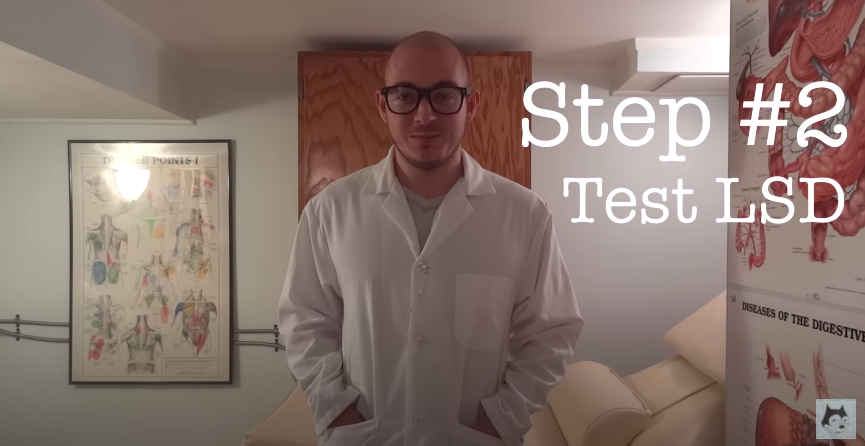
“I’ve come across many vloggers who try drugs online. Most of them live in the US , where it is legal to smoke up,” Sandra said. She likes how there is an educational layer to these videos, as they teach you about safety measures in the case you are going to try a substance.
To me, these were new—but a quick YouTube search brought me to the exact videos in question. I stumbled upon one such channel that makes videos about using drugs safely and in one of their videos, the host opens by saying “This video is for harm reduction purposes. I do not promote the use of illegal or dangerous substances.”
Marina, who also watches these videos, said “It’s very hard to prevent anyone from ever touching or coming across drugs, so it’s better to educate them about what they are and how they can harm you, rather than saying not do it at all.”
While it is unlikely that the mainstream school syllabus will incorporate preventive drug education to such an extent, some countries do see the benefits in educational campaigns about safety and drug use online. For instance, because some drugs are so widely accessible in the Netherlands, its government sponsors a YouTube channel that also makes educational drug content for audiences.
But there are also concerns that popularising a softer approach to drugs can incentivise more people to try them, and then be a gateway to harder substances. While a valid concern, there are individuals who may make the jump to something harder because of a lack of knowledge. In an article I wrote recently, I interviewed three individuals who struggled with addiction. One of the subjects, Nicole—who has been in jail for her substance abuse—told me that she made the switch from marijuana to meth because she didn’t know the difference between the two.
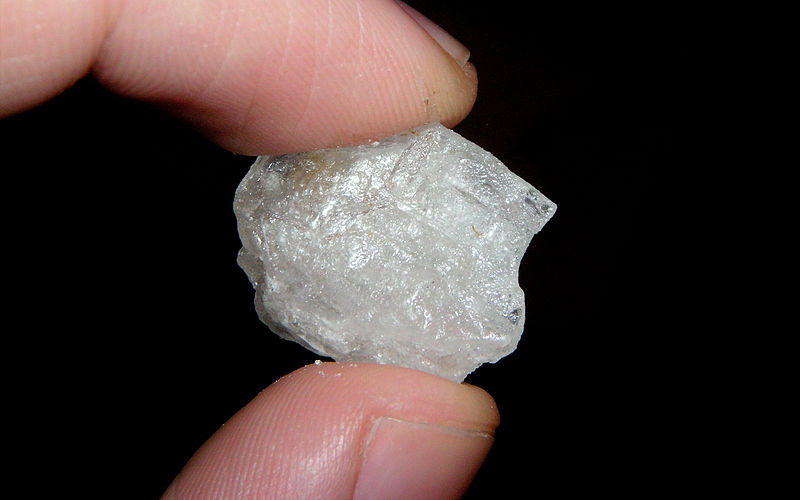
Personal Encounters With Drug Use
Felix, a 30-year-old performer, was forced to find out more about drugs when his sister got addicted. “Growing up, I was pretty clueless,” he said. “The most I would do is smoke and drink. The only way I knew about drugs was through school activities. I even won a competition in primary school where we had to make ‘say no to drug abuse’ posters.”
More than a decade later, Felix started noticing his younger sister’s behaviour change. After catching her smoking with a foreign apparatus in her room, he confronted her. She denied ever taking drugs, so he left it be. Slowly, the situation got worse. She became aggressive, started smashing their home furniture and even tried to punch their mom. One night, she got arrested.
When she got released a few years later, she left her child with Felix and their mom, and went to live with a friend. “She would rarely see her daughter, and when she did, she would visit really late at night without feeding her properly,” Felix said.
“Eventually, she got caught again—on her daughter’s birthday. That was the last time her daughter saw her mum.”
After this experience, Felix adopted a hardline approach towards drugs. “I am willing to lose friends if they don’t understand my stance on it. It is shaped by what I had to go through and my experience.”
As for Marina, one of her sisters too got caught, and landed in jail for drug abuse. Marina said that her sister was going through a really tough time after something bad happened to her, and that she struggled to deal with it. In time, she got depressed and drugs were her only escape from everything she was dealing with.
Like Felix, she learned that “drugs can not only ruin a life, but make everything much harder for everyone around them.” Despite the difficult experience, she still tries to stay open-minded—even if she would never try drugs herself.
Like the characters in Skins, Marina saw how mental health struggles led to her sister’s abuse of drugs. She wasn’t a criminal and never hurt anybody, but she needed support from those around her to get out of the dark place she was in. Maybe, with the right resources at the beginning of her struggle, Marina’s sister might have never gotten into drugs in the first place.
Marina said her friends have also offered her a wide array of perspectives on the issue: “Drugs go against the religion of some of my friends. I have met some people outside of school who are more open to them. I am also starting to have a lot more friends in the straight edge scene—I think that is growing a lot in Singapore.”
For those who don’t know, straight edge is a subculture of the hardcore punk scene, comprising a community of people who abstain from drinking, smoking and taking any drugs. In some cases, they also abstain from eating meat and consuming caffeine.
“With exposure to different perspectives and lifestyles, I have been allowed to form my own opinion,” Marina said.
Unlike Marina and Felix, Sandra was never close to someone struggling with addiction. She has met people who seemed to have a balanced lifestyle but continue to dabble with recreational drug use.
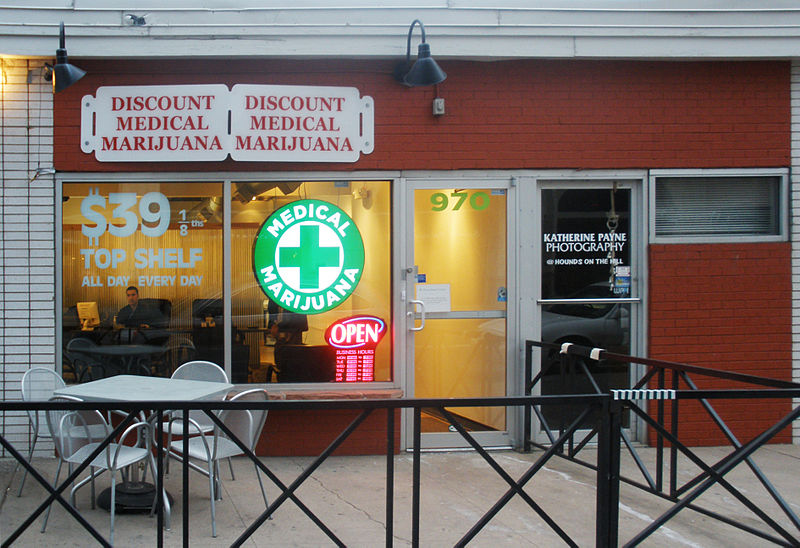
These experiences encouraged her to shift her mindset. The change in her perspective came when she started travelling around California for her job. “I met colleagues from Portland who would smoke up in the morning and turn up at work—and be more productive than I was,” she said.
Unlike the poly kids who Sandra stayed away from, she had a completely different perspective of these co-workers—even if they were using the substance recreationally. “It’s funny to see how society imposes certain stereotypes onto them, whereas when the context changed, I saw successful people using, it didn’t seem that bad.
“I don’t think one way is right or wrong, it’s just interesting to look at,” Sandra said.
Like Sandra, the experiences each of us has with drugs allows us to challenge the stereotypes we have been taught about who takes them and why. Felix brought this up too, referencing how “a lot of people say the gay community is very open to drugs.”
“I hate that. I am very open and I am openly gay, but I don’t want to be associated with drugs. I do not want people to see me and say, oh he is gay, and he is loud so he is probably on drugs. I know it’s not the same— but a lot of that applies to generational biases. We are exposed to drugs in different ways than before, but different people still have different ideas about it.”
This all comes down to stereotyping, in the same way certain communities may or may not be more open to discussing issues to do with drugs, it doesn’t necessarily mean they are using them more.
So, Is Our Generation More Open To Drugs?
With exposure to information from a much younger age, our generation can make better informed opinions—while challenging what we are told. But we can’t forget that we are also a product of our times, and we are living under governments that are changing their approaches to drug policy as well.
Countries like the US and the Netherlands have a more liberal approach to drugs, and these influence a lot of the pop culture we consume. Then there are other countries, like Thailand, where medical marijuana has been legalised—but recreational use is not. So while young people in general may think of drugs in a more positive light than before, this could largely be from a medical standpoint.
In Asia, this change is happening now, as some countries are studying the benefits of medical marijuana and legalising it. Singapore too, has allowed one patient so far to use cannabis-derived pharmaceutical product. A few years ago, these discussions would have been out of the question.
The medical research out there has taught people to have different opinions depending on the drug in question. And that isn’t to say that any drug is completely safe to use—but we should understand the difference and stand guided by authoritative medical research and findings.
We are less absolutist about the people who struggle with addiction as well, and this is linked to the increased mental health advocacy that has taught us the challenges and struggles that cause people to fall into such situations.
The difference can be seen with Felix and Marina. When Felix was growing up, he knew almost nothing about drugs until he was in his twenties and his sister got involved with them, compared to Marina who’s only 17 and had done a vast amount of research on the topic online by the time her family member got addicted.
“It comes down to who holds the narrative,” Sandra said. In previous generations, the school and government had the most control. “We can take what society is giving us, but also learn from what is happening around the world and make our own opinions without having to take drugs ourselves.”
What young adults are learning is that drugs cannot be put under the same umbrella anymore. While teaching kids that drugs are dangerous is important, we also need to offer more comprehensive information about the different drugs that exist and what they do. If not, young adults will learn this on their own—from the internet, or via dangerous experiences like that of Marina’s sister. If she knew more about meth, how it’s different from weed, and how that one hit would leave her addicted, maybe she wouldn’t have tried the new foreign substance before her.
Ultimately, categorising us as the generation who is more open to drugs can put stigmas on us, like it has done with other communities in the past. If we are more open to drugs, it may be because we listen to the research and opinions from different parts of the world we have access to.
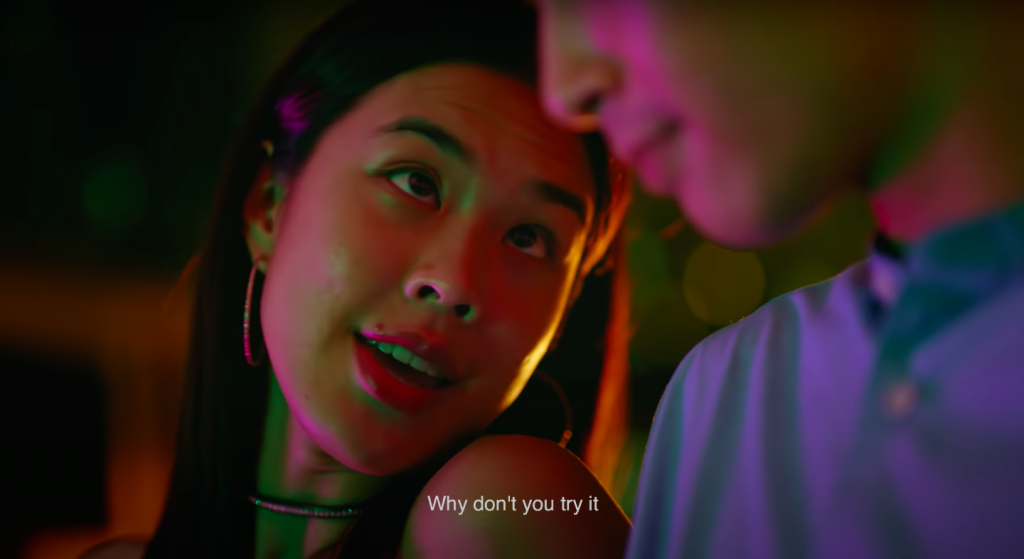
The core of these efforts is to get people to realise the dangers of drugs before they dabble in them, allowing them to make informed decisions. This means targeting increasingly younger audiences who are bombarded with information online, and using popular media tools to gain their attention.
In a confusing time when both science and governments are reforming their perspectives, NCADA ensures that we don’t forget the primary risks and consequences of drug abuse in Singapore—even when they seem harmless and fun.
When I interviewed addicts about their struggles, most of them admitted that they started abusing drugs as a means to cope during difficult times. So while educational videos about drug use online are beneficial for harm reduction, they may remain appealing to people for the wrong reasons. We have made an incredible jump by opening up the discussion around drugs, which was previously very stigmatised. But now, we need to open the conversation and address how we feel, our issues, and how to cope with them in a healthy way.
Click here for a directory of psychological support resources.
